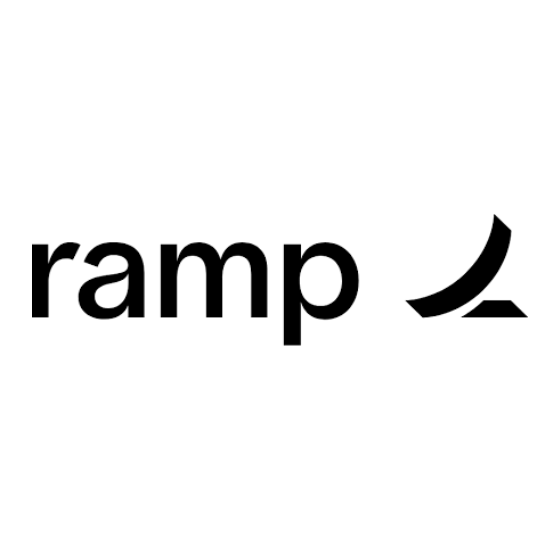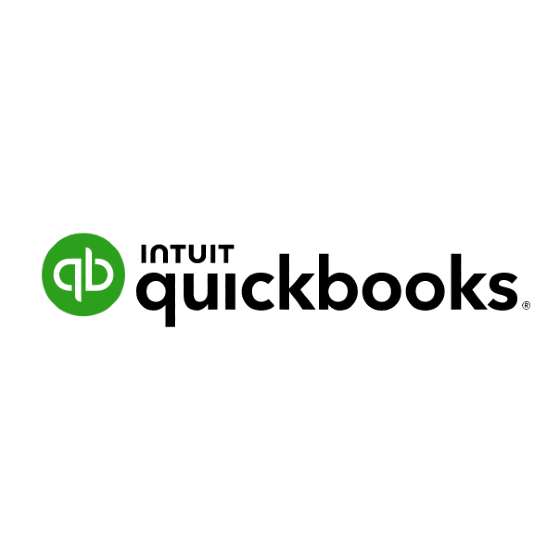QuickBooks is one of the most widely used accounting tools on the market, but pricing can vary significantly depending on your business’s needs and growth stage. In this guide, I’ll walk you through the QuickBooks pricing structure, what’s included at each tier, what additional costs to expect, and how it stacks up against alternatives.
As a financial controller who's managed everything from solo-ledgers to SaaS finance teams, I know that choosing the right accounting software isn’t just about cost—it’s about value. Whether you're a lean startup or a scaling SaaS org, this breakdown will help you make a financially sound decision that supports your team’s growth and avoids bloated spend.
How Much Does QuickBooks Cost?
QuickBooks’ paid plans range from $24 to $160 per month. New users can try a 30-day free trial to explore features before choosing a plan. Custom pricing is available for enterprise or specific business needs, providing tailored solutions and support.
QuickBooks Plans & Pricing Tiers
Here's an overview of the available QuickBooks plans:
| Plan Type | Price /Month | What’s Included? |
| EasyStart | $24/month | Track Income & Expenses, Create & Send Invoices, Accept Payments, Sync Bank Accounts, Basic Reports, Capture & Organize Receipts, Track GST & HST, Free Unlimited Support, Access on Mobile Devices |
| Essentials | $54/month | All EasyStart features, plus: Manage Bills, Multi-Currency Support, Track Time, 3 Users, Mobile Access, Automated Receipt Capture, Free Unlimited Support |
| Plus | $80/month | All Essentials features, plus: Project Tracking, Inventory Tracking, Track Profitability, 5 Users, Access on Mobile Devices, Automated Receipt Capture, Free Unlimited Support |
| Advanced | $160 /month | All Plus features, plus: Advanced Reporting, Dedicated Account Team, 3 Accountant Seats, Customize Access by Role, 25+ Users, Automated Workflows, Dedicated Account Manager, Integrations with Business Apps, Batch Invoicing, Spreadsheet Sync, QuickBooks Desktop App, Revenue Recognition |

Let’s break down the available QuickBooks plans a bit further:
QuickBooks EasyStart Plan
The EasyStart Plan, at $24/month, suits self-employed freelancers and small businesses needing basic financial management. This version of QuickBooks includes single-user features like invoicing, expense tracking, and basic reporting.
This also allows businesses to accept invoice payments like ACH and credit cards via a third-party payment processor. While great for simple income and expense management, it doesn’t offer advanced features or add-ons like multi-currency support or project tracking.
QuickBooks Essentials Plan
The Essentials Plan, priced at $54/month, is designed for small to mid-sized businesses needing features like multi-currency transactions and bill management. It’s suitable for companies seeking better financial insights and user collaboration but doesn’t include project profitability tracking.
QuickBooks Plus Plan
The Plus Plan, at $80/month, is for growing businesses needing project tracking and inventory management. It’s ideal for those requiring detailed financial analysis and inventory oversight. However, it lacks advanced reporting tools and customization options.
QuickBooks Advanced Plan
The Advanced Plan, at $160/month, is designed for mid-sized businesses with complex financial needs, offering advanced reporting and dedicated account management. It’s ideal for industries requiring in-depth data analysis but may be excessive for smaller companies with simpler needs.
What Affects QuickBooks Pricing?
QuickBooks pricing scales based on more than just your chosen plan. Understanding the variables that affect total cost helps ensure you’re selecting the right fit for your business needs—not just your budget.
Key pricing drivers include:
- User Count: Plans come with built-in user limits. As your finance function grows, additional users can push you into a higher-tier plan.
- Add-Ons & Modules: Payroll, Payments, and Time Tracking each require separate subscriptions or integrations.
- Feature Access: Some features—like project profitability tracking or batch invoicing—are only available in higher-tier plans.
- Support Needs: Advanced plans offer more hands-on support, including a dedicated account team and guided onboarding.
- Industry Requirements: Businesses with niche compliance needs or complex workflows may require more expensive features or custom setups.
If you're budgeting for QuickBooks, take the time to review not just plan comparisons, but also any tool-specific costs that may show up post-purchase.
Additional Costs to Watch Out For
While QuickBooks pricing is clearly tiered, not every cost is obvious up front. Depending on your team’s structure and operational complexity, you might face add-on fees that aren’t immediately visible in the base subscription plans.
Understanding these potential costs can help you budget accurately and avoid tool bloat in your finance stack:
Payroll, Payments & Add-On Services
QuickBooks Payroll and QuickBooks Payments are sold separately and priced based on usage—usually with monthly base fees plus per-employee or per-transaction rates. These services can be essential, but costs add up fast, especially if you're scaling headcount or processing high transaction volume.
Advanced Reporting or Customization
While the Advanced plan includes reporting tools and role-based access, teams using lower-tier plans may need third-party integrations or upgrades to get similar functionality. Custom fields, workflow automation, and integrations often require plan upgrades or extra fees.
Additional User Licenses
User limits vary by plan—3 users on Essentials, 5 on Plus, and 25+ on Advanced. Need more? You’ll pay more. Ensure you’ve aligned the plan with your team’s size and expected growth.
Support Limitations
QuickBooks touts unlimited support, but fast or specialized assistance (especially for implementation or integrations) may come with caveats. Businesses needing priority or dedicated support should confirm what's actually included.
Data Migration or Setup Services
While QuickBooks includes free onboarding for new users, more complex data imports or third-party system integrations may require paid help. Ask upfront if migration is DIY or if onboarding support costs extra.
QuickBooks Pricing vs. Competitors
QuickBooks offers several pricing plans: EasyStart ($24/month), Essentials ($54/month), Plus ($80/month), and Advanced ($160/month), with discounts for new customers and annual payments.
All plans include income tracking, invoicing, and expense management, with different user limits. Pricing is considered average, balancing cost and features compared to competitors. Most plans offer integration options, but advanced features are only in higher-tier plans.
Each plan includes security safeguards that meet industry standards. Finally, QuickBooks offers a free 30-day trial without any commitments or additional fees.
QuickBooks Pricing vs. Competitors
QuickBooks offers several pricing plans: EasyStart ($24/month), Essentials ($54/month), Plus ($80/month), and Advanced ($160/month), with discounts for new customers and annual payments.
All plans include income tracking, invoicing, and expense management, with different user limits. Pricing is considered average, balancing cost and features compared to competitors. Most plans offer integration options, but advanced features are only in higher-tier plans.
Each plan includes security safeguards that meet industry standards. Finally, QuickBooks offers a free 30-day trial without any commitments or additional fees.
Comparison Chart: QuickBooks vs. Alternatives
Wondering how QuickBooks pricing compares to NetSuite or other accounting software? Here’s a comparison chart that breaks down the costs of other accounting software side-by-side:
| Tool | Best For | Trial Info | Price | ||
|---|---|---|---|---|---|
| 1 | Best for automated expense management | 30-day free trial + free plan available | From $15/user/month | Website | |
| 2 | Best for service-based businesses | 30-day free trial | From $6.30/month (billed annually) | Website | |
| 3 | Best for cash flow insights | 14-day free trial | From $25/month | Website | |
| 4 | Best for small businesses | 30-day free trial | From $10.50/month (for 3 months, then $35/month) | Website | |
| 5 | Best for fast-growing businesses | 30-day free trial | From $2/month (for 3 months, then $20/month) | Website | |
| 6 | Best for comprehensive invoicing and billing | Free trial + free plan available | From $15/month (billed annually) | Website | |
| 7 | Best for mid-sized businesses | Free demo available | Pricing upon request | Website | |
| 8 | Best for multi-entity financial management | Free demo | Pricing upon request | Website | |
| 9 | Best for real-time financial insights | Free trial available | Pricing upon request | Website | |
| 10 | Best for flexible accounting methods | Free demo available | From $20/month | Website |
Alternatives to QuickBooks
QuickBooks is a solid accounting software, but there are plenty of other options out there. Depending on your use case, budget, team size, and other factors, you might consider shopping around for a solution that’s better suited to your needs. If you’re looking for alternative accounting software options to QuickBooks, here are a few worth checking out:
Our one-on-one guidance will help you find the perfect fit.
How to Choose The Right QuickBooks Plan
When deciding which QuickBooks plan to go with, you’ll want to consider the added value and potential drawbacks that come with each plan. Scrolling through long lists of features can quickly lead to confusion and uncertainty, so here are a few factors to keep in mind as you evaluate and assess your options:
QuickBooks Scalability and Team Size
Evaluating QuickBooks' scalability is key to matching your team's size and growth.
Smaller teams (1-5 members) might find the Simple Start or Essentials plans sufficient for basic accounting needs. Medium-sized teams (6-10 members) may benefit from the Plus plan, which includes features like project tracking. Larger teams (over 10 members) should consider the Advanced plan for more capacity and advanced reporting.
Choosing the right plan ensures your accounting software supports your team's growth, efficiency, and productivity.

Industry-Specific QuickBooks Features
When assessing accounting software, check if QuickBooks fits your industry's needs. QuickBooks offers specialized features for various sectors, boosting efficiency and supporting specific tasks.
For example, it provides real-time insights and automated workflows for professionals, streamlines manufacturing sales processes, supports job cost management in construction, and manages retail inventory.
These targeted features enhance team productivity. QuickBooks provides these capabilities through plans like Desktop Enterprise and Online Advanced, each with different access levels and pricing. Knowing these features helps you choose the right plan for your business.

QuickBooks Integration Capabilities
Connecting accounting software to your tech stack is essential for smooth operations and data management.
QuickBooks offers native integrations with over 750 popular business apps, boosting functionality and connectivity. It also provides an API for custom integrations, letting you tailor solutions to your needs. QuickBooks works with third-party tools like Zapier, allowing you to automate tasks and link QuickBooks with thousands of other apps without coding. This flexibility helps your team streamline workflows and keep accurate financial records.

QuickBooks Security Safeguards
When choosing a QuickBooks plan, consider the security features each plan offers. QuickBooks Online Advanced includes continuous cloud backups and data restoration for better data protection. Users can manage access with custom roles, enhancing collaboration and security.
QuickBooks uses firewalls and encryption to keep your financial data safe. While all plans have some security measures, higher-tier plans typically offer more extensive protection. Mobile app access is available, though features may vary by plan.

QuickBooks Pricing FAQs
Here are answers to a few common questions about QuickBooks pricing:
What additional costs should I anticipate with QuickBooks?
In addition to the subscription fees, users may incur additional costs for features such as QuickBooks Payroll, which is sold separately and includes a per-employee fee. QuickBooks Payments also requires a subscription and may have eligibility criteria. Users should consider these additional services when planning their budgets.
Are there any discounts or promotions available for QuickBooks?
QuickBooks offers promotions such as a 75% discount for the first six months for new customers, with discounts of up to 80% on certain plans. These offers typically apply to purchases made directly from QuickBooks. Users can also take advantage of a 30-day free trial, although discounts do not apply during the trial period.
How often does QuickBooks change its pricing structure?
QuickBooks’ pricing structure is subject to change, but specific historical data on the frequency of changes is not provided. Offers and terms, including pricing, can change without notice. Customers should check the QuickBooks website regularly for the latest information.
Can I cancel my QuickBooks subscription anytime?
Yes, QuickBooks allows users to cancel their subscription anytime without being tied to a contract. However, it is important to note that no pro-rated refunds are offered upon cancellation.
What support options are available with a QuickBooks subscription?
QuickBooks provides free unlimited support for setup and ongoing assistance. New subscribers can book a free onboarding session with an expert, and technical support is available, although hours may vary.
Are there specific terms for using QuickBooks discounts?
Discounts on QuickBooks Online apply to the list price and revert to the standard rate after the promotional period. Users must purchase directly to qualify for promotional discounts, and any offers are subject to change without notice.
Is QuickBooks Worth the Cost?
For many growing finance teams, QuickBooks offers a solid balance of usability, scalability, and price. Its tiered structure lets you align features with company maturity, and its ecosystem of add-ons gives you flexibility without the need for immediate re-platforming.
You’re likely to get the most value from QuickBooks if:
- You want a tool that can grow with your team size and complexity
- You’re looking for reliable accounting without steep onboarding costs
- Your finance ops rely on integrations with tools like Shopify, PayPal, or CRM systems
While enterprise finance teams may eventually outgrow QuickBooks, for startups, SaaS companies, and fast-scaling businesses, it remains a practical, cost-effective choice.
Want to learn more about QuickBooks? Check out their site for additional information.
From $3.80/month
Free demo available
What’s Next?
Ready to compound your abilities as a finance professional? Subscribe to our free newsletter for expert advice, guides, and insights from finance leaders shaping the tech industry.












